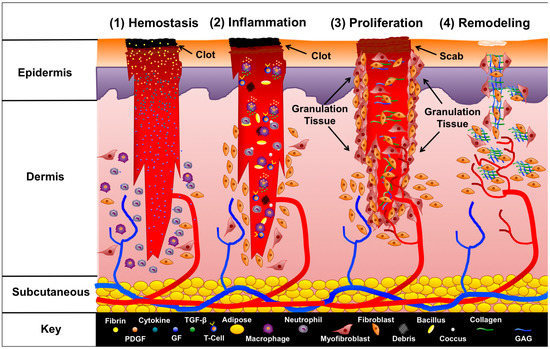
Hyaluronic acid (HA) is a substance widely used in beauty and medical fields. We know it has strong moisturizing and healing abilities. However, there is some debate about whether hyaluronic acid can trigger inflammatory reactions.
What is Hyaluronic Acid
Hyaluronic acid is a naturally occurring polysaccharide in human tissues. It was isolated from the vitreous body of the eye of a cow. Later, it was widely reported to be distributed in the skin, joint fluid, eyes, and other connective tissues of humans.
Hyaluronic acid has many benefits, the most well-known being its ability to retain moisture and lubricate joints. Because its molecular structure can hold large amounts of water, HA helps keep skin hydrated and increases its elasticity, making it a common ingredient in skincare products and fillers. In joint fluid, HA helps reduce friction, protect cartilage, and maintain joint function.
Read more: 10 Proven Benefits of Hyaluronic Acid
Anti-inflammatory Mechanisms of Hyaluronic Acid
Hyaluronic acid has significant anti-inflammatory properties, mainly due to its high molecular weight (HMW) form. Under normal physiological conditions, high molecular weight HA can exert anti-inflammatory effects through various mechanisms.
- Physical Barrier: High molecular weight HA can create a shielding layer on the cell surface for protection against pathogenic invasion and inflammatory agents to reduce tissue damage.
- Inhibition of Inflammatory Mediators: HMW HA probably works through the inhibition of the release of certain inflammatory mediators, including TNF-α and interleukins such as IL-1β and IL-6, thus reducing inflammation.
- Immune Response: Hyaluronic acid binds to cell surface receptors like CD44. It regulates the function of macrophages and neutrophils and suppresses overactive immune responses, thereby reducing inflammation.

Applications Based on Anti-inflammatory Effects
Hyaluronic acid has broad applications in both medical and cosmetic fields due to its anti-inflammatory properties, including the following uses.
- Hyaluronic acid injections may be used as a form of joint lubrication in treating osteoarthritis and can relieve pain and inflammation while improving the function of joints.
- Facial fillers for skin elasticity and good appearance are other uses of hyaluronic acid, which can help reduce any inflammation from skin injury or cosmetic surgery due to its anti-inflammatory effect.
- In eye surgeries, HA is used to maintain space and pressure intraocularly, hence reducing the possibility of possible inflammation during the surgery.
Does Low Molecular Weight Hyaluronic Acid Promote Inflammation
So far, we have discussed high molecular weight HA, but low molecular weight HA is different. Low molecular weight (LMW) forms may exhibit pro-inflammatory properties under certain conditions. When the molecular weight of HA drops below a certain level (e.g., 500K Daltons), especially in cases of tissue injury or pathological conditions, low molecular weight HA can show pro-inflammatory effects. The reasons include:
- Stimulation of Inflammatory Responses: Low molecular weight HA can be recognized by immune cells in the body as damage-associated molecular patterns (DAMPs), activating inflammatory pathways and causing immune cells such as macrophages and neutrophils to become active, leading to increased inflammation.
- Promotion of Cytokine Release: Under certain pathological conditions, low molecular weight HA can promote the release of pro-inflammatory cytokines such as TNF-α and IL-1β, exacerbating the inflammatory process.
Therefore, the molecular weight of hyaluronic acid is a key determinant of its function. When using HA, it is crucial to choose the appropriate molecular weight range to avoid potential pro-inflammatory risks.
How to Avoid Inflammation
Even though low molecular weight HA can stimulate inflammatory responses, effective measures can be made in practical application to seek ways of reducing or avoiding this.
1. Controlling Molecular Weight. Hyaluronic acid whose molecular weight is above 500 000 Daltons is considered safe and has a low pro-inflammatory potential.
2. Blending with anti-inflammatory actives. Formulations that contain anti-inflammatory actives such as green tea extract, glycyrrhizic acid, and centella asiatica extract can shorten the pro-inflammatory activity of LMW HA.
Conclusion
In other words, hyaluronic acid (HA) may modulate or induce inflammatory processes, depending on its molecular weight and the particular application situation. In general, high molecular weight HA has apparent anti-inflammatory effects and wide applications in medical and cosmetic fields. On the other hand, however, low molecular weight HA under specific conditions may trigger an inflammatory response. Therefore, the choice of appropriate molecular weight is critical in using hyaluronic acid in a particular situation to maximize its therapeutic benefit while avoiding any unnecessary inflammatory reactions.
Stanford Chemical Company (SCC) is a premium supplier of hyaluronic acid, offering sodium hyaluronate powders (Cosmetics Grade, Food Grade, Injection Grade, Medical Grade) in a variety of molecular weights. For more information or specific applications, please visit our home page or Get A Quote.
FAQs
1. Can hyaluronic acid cause an inflammatory response?
Hyaluronic acid itself typically does not cause an inflammatory response. It is a naturally occurring polysaccharide found in the human body, particularly in the skin, joints, and eyes, and is generally considered safe. However, in some cases, such as with hyaluronic acid injections, inflammation may occur due to impurities in the product or an allergic reaction to its components.
2. Can hyaluronic acid products cause skin inflammation?
Generally, hyaluronic acid products applied topically, in the form of moisturizers and serums, do not lead to skin inflammation. Hyaluronic acid is designed to moisturize and repair the skin and, correspondingly, can enhance the barrier function of the skin and reduce inflammation. Inflammation can be caused in the case of other irritating ingredients included in the product or because of allergic reactions to hyaluronic acid or other components.
3. Is inflammation possible with hyaluronic acid injections?
Several side effects of hyaluronic acid injections, which can be used either as dermal fillers or joint injections, include temporary mild inflammation, as evidenced by some swelling, redness, and pain. These are usually self-limiting and may clear up in the first few days. If the inflammation persists or worsens, then it is best to consult with a healthcare professional.
4. Can people with inflammatory skin conditions use hyaluronic acid?
Hyaluronic acid is well-tolerated in individuals with inflammatory conditions of the skin, such as eczema and rosacea, and the moisturizing effects of hyaluronic acid can help soothe symptoms. However, it is recommended to perform patch testing with new products and also use them judiciously with the guidance of a dermatologist.
5. Can hyaluronic acid exacerbate active inflammation?
It does not usually worsen already existing inflammation. During some therapeutic procedures, hyaluronic acid is even applied to decrease inflammation in joints and tissues. However, any medication or product can provoke reactions in specific cases.
